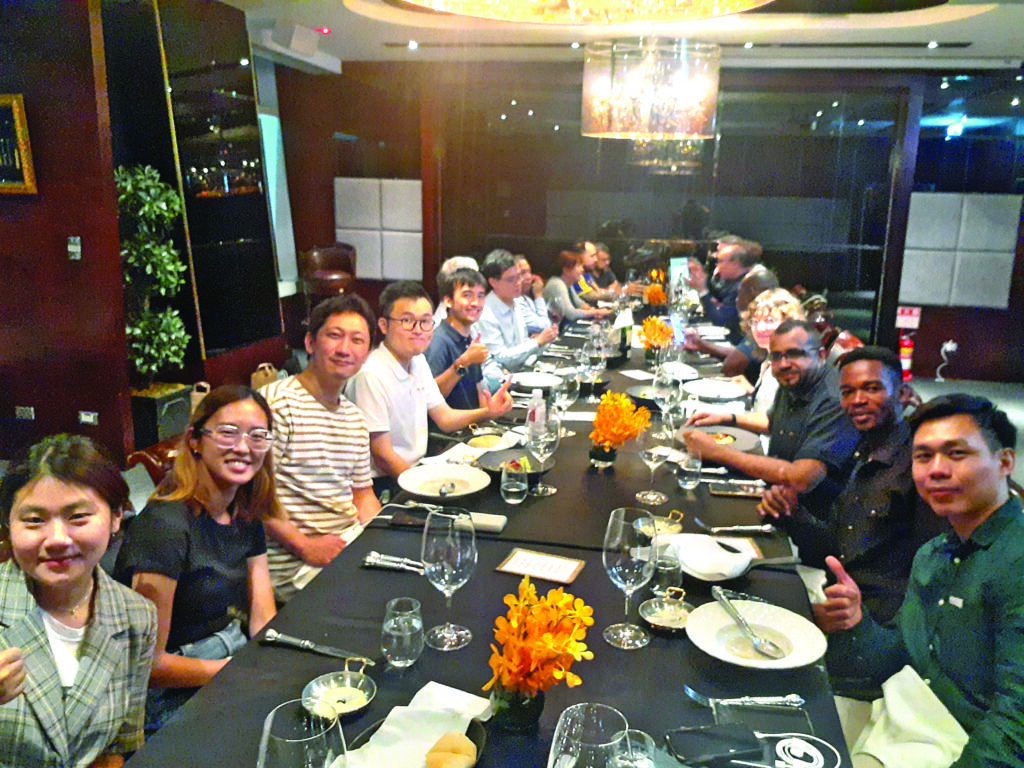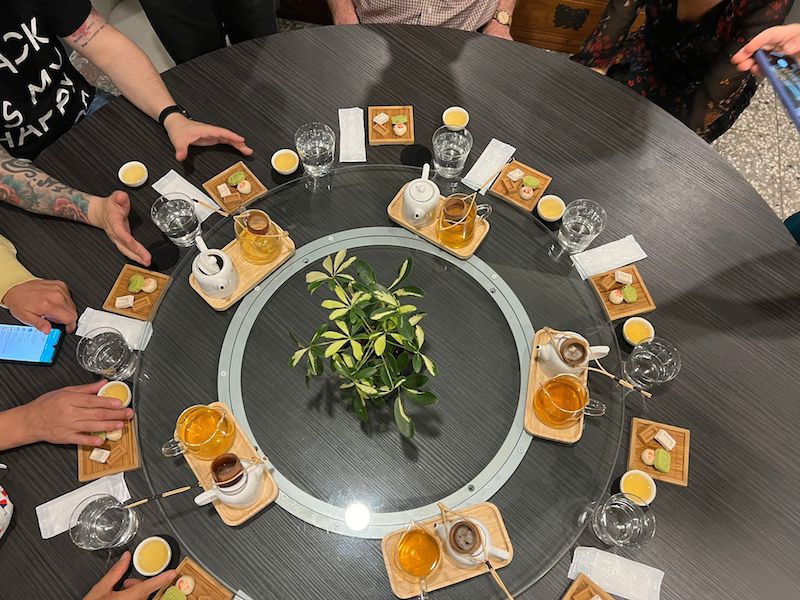 By
By
Greenery, technology, traditional arts exist side by side in Taiwan, an island full of friendly, techno-savvy people
Sunk in a very busy day at our newsroom, I received a call that a trip to Taiwan has come up and that I had to go and apply for a visa immediately.
Thumbs up for the Taipei Economic and Cultural Office, Muscat, I was able to get it within 15 minutes (15 minutes!), after which my flight tickets was sent to me within no time. Checking through my ticket, I realised it was going to be a one week trip. I love adventure and traveling is my passion. Even though I was caught up with work, I decided to go for it with much excitement.
In a group of twenty journalists from different parts of the world, we all met in Taipei where we were handed the itinerary for our stay from the time we arrive until departure. The organising staff were so friendly, the fatigues of my full day journey from Muscat to Taipei via Bangkok just seemed to disappear in an instant.

I had always been aware of cities in other countries, but trust me, landing in this beautiful island felt like ‘heaven on earth’ – after coming from the high temperatures in Muscat to a cool place with waves and fresh breeze. Starting from Taiwan Taoyuan International Airport, we drove for an hour to Taipei, which is a rich green, beautiful, yet well developed, city that steals your heart and takes your breath away. The light drizzles and rays of sunrise piercing through the sky made me feel blessed.
Welcomed by the Grand Hyatt Taipei, which is a few blocks away from the 509m-tall, bamboo-shaped Taipei 101 skyscraper, with upscale shops at the base and a rapid elevator to an observatory near the top, I realised that not only is the city adorable but its people, too, were so warm and kind. It wasn’t until 11pm that night when I settled in my luxurious room.
The plan was to meet all other international journalists the next day to start our adventure. For breakfast the next day, I had a light delicious breakfast comprising healthy dishes. Thereafter, we were taken around the city and I loved the fact that it was not so congested with heavy traffic and pollution.
In fact, Taipei is a calm city that makes one run schedules at one’s own pace. Taipei is also known for its lively street-food scene and many night markets, including the popular, expansive Shilin market.
In Taiwan, it is all about tea with every meal. Served in a cup without handles, it is practice to admire the brew as you sip on. Their lives are ingested by tea with every meal. In fact, it feels like a ‘no tea, no life’ kind of thing. I cannot count how many cups of tea I had in one week.

By the end of the first evening, I was a bit worn out and went back to my hotel room to freshen so that we could again meet up for dinner.
In my own view, the Taiwanese know how to enjoy food. And no food is complete without a cup of tea during and after meals. Taiwan may not be one of your favourite destination, but may serve as a good base for sightseeing yet advancements in technology. Although many Asian and western tourists go in that direction, people from the Middle East are less frequent sight.
The capital Taipei is a friendly city whose allure lies in its blend of Chinese culture with a curious fusion of Japanese, Southeast Asian and American influences. In many ways this 300-year-old city is like a living museum. The Taoist temples buzz with the prayers of the hopeful – the wooden boards of Japanese-era mansions creak under the feet of visitors, while the treasures in the National Palace Museum date back 5000 years.
To attract more visitors again, Taiwan will end its mandatory COVID-19 quarantine for arrivals from October 13, completing a big step on its plan to reopen to the outside world. Taiwan had kept some of its entry and quarantine rules in place as large parts of the rest of Asia relaxed or lifted them completely, although in June it cut the number of days required in isolation for arrivals to three from seven previously.
According to officials, with a well-vaccinated population and the pandemic under control at home, the time had come to reopen borders. Arrivals will still need to monitor their health for a seven-day period and take rapid tests, but tourists will be allowed to return.
A series of other measures came into force last week, including ending PCR tests for arrivals and resuming visa-free entry for citizens of all countries that previously had that status. Throughout the pandemic, Taiwanese citizens and foreign residents have not been prohibited from leaving and then re-entering, but have had to quarantine at home or in hotels for up to two weeks.
For those in love with innovation, Taiwan’s Hsinchu Science Park which is surrounded by academic research institutions such as Hsinchu County and the City, the Industrial Technology Research Institute of the Foundation, the National Tsinghua University, and the Jiaotong University is worth a visit.
In addition to the Synchrotron Radiation Research Center, Hsinchu is also home to the National Experimental Research Institutes, including the National High-Speed Network and Computing Center, the National Space Center, the Wafer System Design Center, and the Nano Component Experiment. In most cases, when we travel, we focus much on the capitals and major cities of particular countries, but trust me, having a chance to explore cities in the outskirts, you will not regret it.
Located beside Dongshan River in Yilan, National Center for Traditional Arts is designed with the goal of preserving Taiwan traditional arts while helping its renewal and innovation. The exterior of National Center for Traditional Arts is in red-tile with modern elements. All buildings and the streets display Taiwan life in earlier time. The center had been rearranged and added new facilities in 2016.
The National Center for Traditional Arts is a 24-hectare complex park that includes Definitely Taiwanese, Traditional Theater, Outdoor Theater, Modern Theater, Wen-Chang Temple, Exhibition Center, Traditional Handicraft Artists’ Studio, Traditional Music Hall, Library, accommodation area, etc. It helps Taiwan public get close to traditional arts and get an opportunity to participate in DIY.
Some traditional activities, experiences and games are offered for visitors to get to know more about the fascinating Yilan history. The restaurants in the center serve a variety of Yilan traditional foods and snacks.
Moreover, there are many handicraft stores that are popular with tourists. One can buy some interesting crafts as souvenirs. Also, often exhibitions and performances are held in the centre for visitors to enjoy.
© 2021 Apex Press and Publishing. All Rights Reserved. Powered by Mesdac